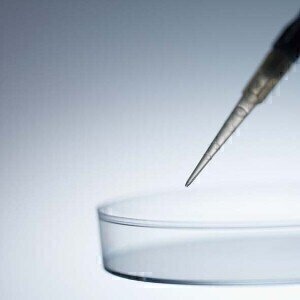News
Laboratory grown ears 'may assist wounded war veterans'
Sep 12 2012
Experts in the US have paved the way for war veterans and other injured people to have replacement ears grown, after scientists at a laboratory in Massachusetts cultivated the organs using a new framework.
The project was led by Cathryn Sundback, director of the tissue engineering lab at Massachusetts General Hospital, and was made possible thanks to the American government, which created the Armed Forces Institute of Regenerative Medicine (AFIRM) in 2008.
The aim of the AFIRM is to provide those injured or disfigured in battle with the ability to lead as normal, or as close to normal, lives as possible.
The latest study is one such example of bioengineering research made possible by the institute, and works by overcoming some of the impracticalities that experts have encountered over the years.
One of the main obstacles was growing an ear the exact same size and shape as the patient's other ear, and this has been achieved thanks to the use of a titanium frame.
Through the use of a computer model based on the patient's remaining ear, researchers create a titanium framework covered in collagen - the protein that helps to provide skin with its elasticity and strength - then take a small amount of cartilage from between the ribs or inside the nose or and place the cells along the frame.
The resultant framework is then incubated in a lab dish to grow more cartilage for around 14 days, after which a skin graft is taken from the patient in order to cover the cartilage and the ear is stitched into place.
Using sheep models, the experts at the Massachusetts General Hospital lab have been able to maintained lab-grown ears for 20 weeks and have also cultivated anatomically correct human ears from cells, which have since been implanted onto the back of rats to enable them to survive.
It is hoped the research will pave the way for the growth of other organs to treat badly injured and disfigured former soldiers and other patients.
As former AFIRM director Terry Irgens commented: "The whole idea is to bring all these researchers together to develop these great technologies that were in early science to eventually be ready for the troops."
Digital Edition
Lab Asia Dec 2025
December 2025
Chromatography Articles- Cutting-edge sample preparation tools help laboratories to stay ahead of the curveMass Spectrometry & Spectroscopy Articles- Unlocking the complexity of metabolomics: Pushi...
View all digital editions
Events
Jan 21 2026 Tokyo, Japan
Jan 28 2026 Tokyo, Japan
Jan 29 2026 New Delhi, India
Feb 07 2026 Boston, MA, USA
Asia Pharma Expo/Asia Lab Expo
Feb 12 2026 Dhaka, Bangladesh



















